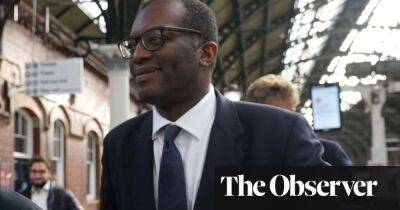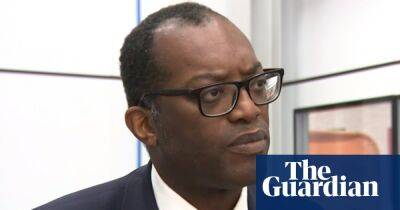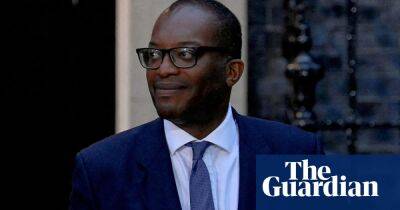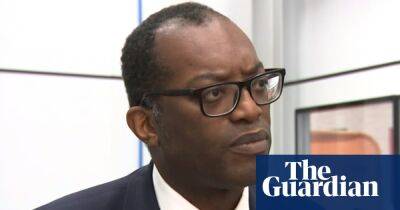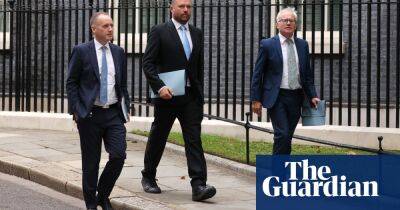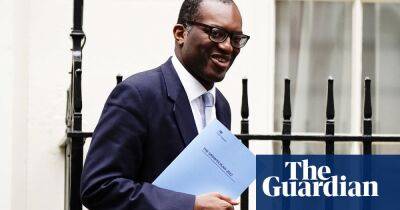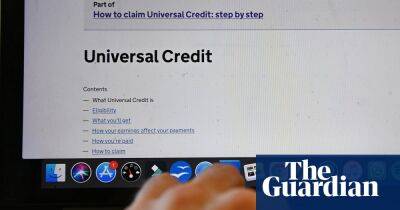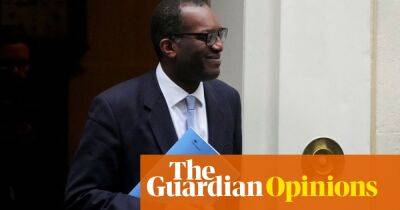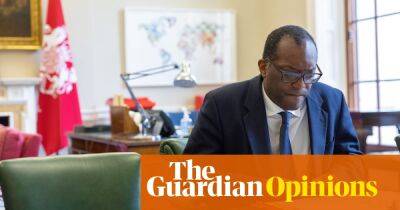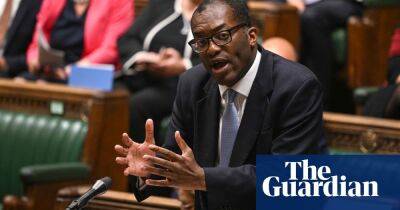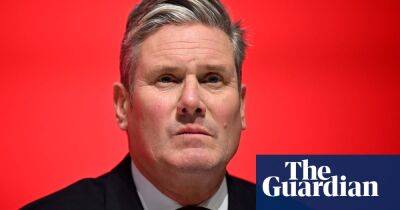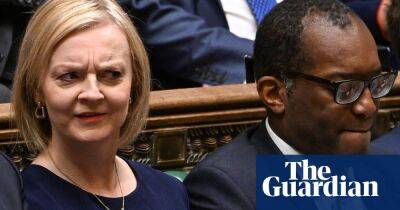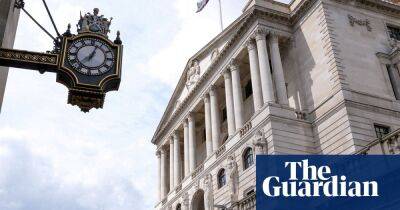Kwarteng: UK economy must expect more tax cuts and deregulation
Liz Truss plans to radically reshape the UK economy with even more tax cuts and fewer regulations, her chancellor has said, declining to set a limit on how much public debt could be incurred in the process.
“There’s more to come,” Kwasi Kwarteng told BBC One’s Sunday with Laura Kuenssberg, two days after his unofficial budget delivered £45bn of tax cuts, mainly for the rich.
“We’ve only been here 19 days. I want to see, over the next year, people retain more of their income,” he said.
Kwarteng dismissed the negative reaction of the money markets to his mini-budget and the amount of borrowing it will involve, and said he was confident the Bank of England would be able to keep a grip on inflation.
He also denied his tax cuts predominantly favoured those on higher incomes. “They favour people right across the income scale,” he said.
Challenged over how a government with no new mandate could embark on such a radically different course, the chancellor said he was certain the public supported his ideas.
Asked about fiscal plans that will add about £400bn to public borrowing over the coming years, Kwarteng said he was committed to debt as a proportion of GDP falling over time, but gave no details as to how or when.
“Obviously, you can’t borrow forever, and that’s why on Friday I was very specific, very careful, to say that we’re going to have a medium-term fiscal plan,” he said, arguing that the government had to respond to the economic shocks of the Ukraine war and Covid.
“We had two multigenerational unprecedented events,” he said. “There’s no way that a government shouldn’t respond in a fiscally expansive way, in a way that we can support the economy, support our people through these two unprecedented shocks.
“All I would say on
Read more on theguardian.com
